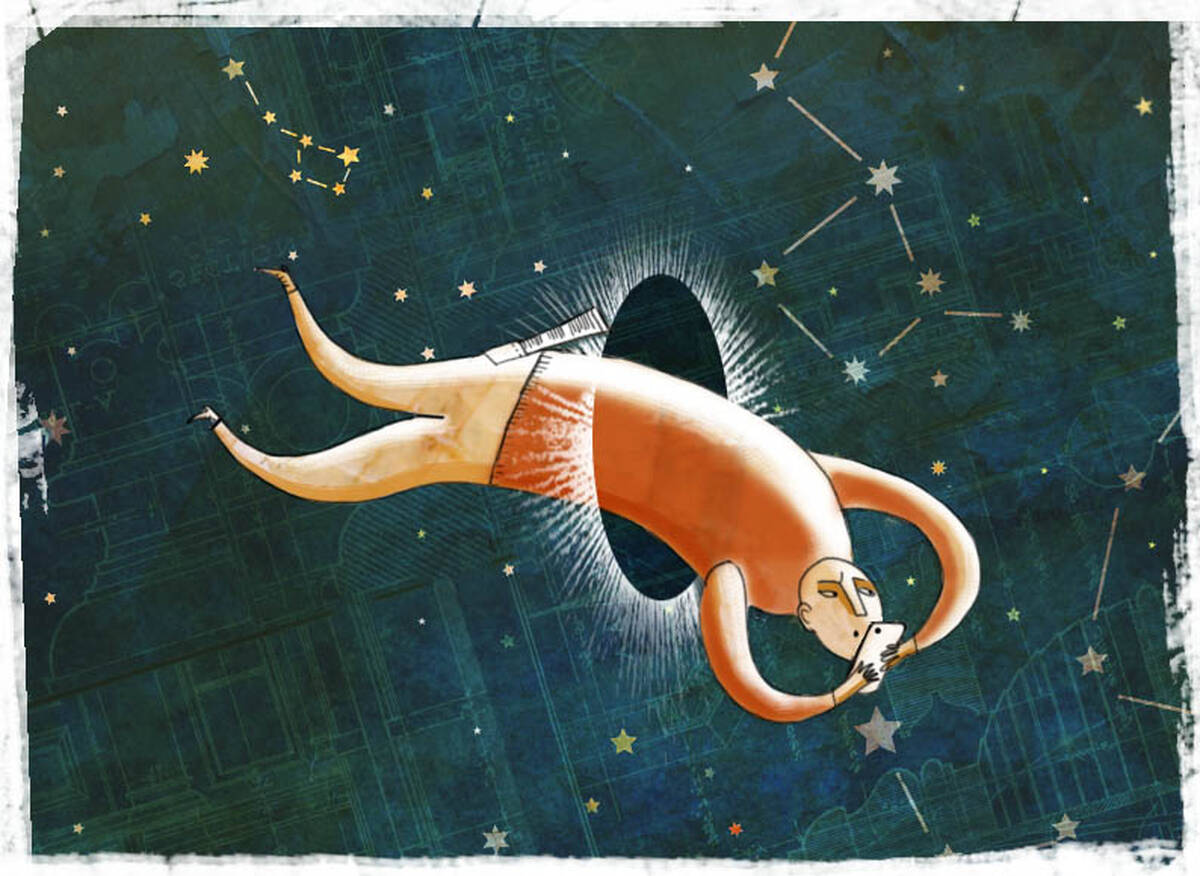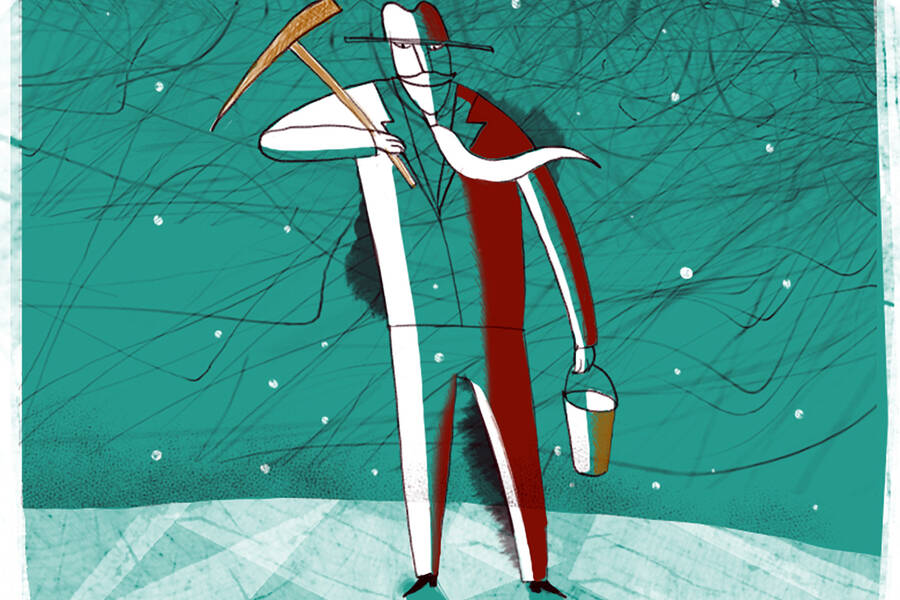Economics Apr 7, 2016
How the Wormhole Decade (2000–2010) Changed the World
Five implications no one can afford to ignore.

Yevgenia Nayberg
Think 1999—what were the most pressing issues of the day? Perhaps Y2K and the dot-com bubble? Remember 6% interest rates, the flip phone, Sony Walkman, Bill Clinton and Boris Yeltsin, and when the French franc was still legal tender?
No one would have bet that within a decade Arthur Andersen, Lehman Brothers, and Bear Sterns would be gone; global interest rates would be at zero and stuck there; not to mention that social media, iTunes, and the Internet of things would be ubiquitous; and privacy as we knew it would be over.
It is rare in human history that a single decade brings truly foundational change. But during 2000–2010 everything happened at warp speed—and in such a strange way that most people did not seem to notice the magnitude. It is as if we were all transported into a new universe through a wrinkle in the space–time continuum. So much so, that I have come to think of it as the “wormhole decade”—a period when the traditional rules of economic might, social status, and political hierarchy were completely rewritten.
A Brief History
The wormhole decade began with 9/11, the first major foreign attack on United States continental soil in nearly two centuries. Two months later Goldman Sachs introduced “BRIC” (Brazil, Russia, India, China) and the idea that these economies might grow in importance in the 21st century. At that time, they were together producing maybe 5–6% of global GDP. By 2010, with the Euro-zone and U.S. economies struggling, BRIC accounted for nearly 20%, soon to be 30%, of global GDP—a truly tectonic shift.
A 16-year-old in Mumbai now has so much data and network access at her fingertips, it is akin to what a Fortune 100 CEO had in the 1970s and 80s.
Meanwhile, the expansion of the Internet exploded the amount of data and information available, and the invention of smartphones and tablets created a world of unparalleled market transparency, creativity, and collaboration. A 16-year-old in Mumbai now has so much data and network access at her fingertips, it is akin to what a Fortune 100 CEO had in the 1970s and 80s.
With the founding of Facebook, Twitter, and Ted Talks, we learned about likes, retweets, and views—revolutionizing the way we think about social status, branding, and reputation-building. And such is the impact of social media that when a relatively inexperienced senator from Illinois ran for the US presidency in 2008, he was able to overtake political powerhouses because his campaign was the first to “get” it. With Uber’s founding in 2009, the taxi industries that crisscross the world’s capitals were upended in less than five years. Likewise, the image of a Tunisian street vendor setting himself on fire in late 2010 helped to catalyze revolutions across the Middle East and North Africa.
This rate and magnitude of societal change is unprecedented in human history. Now halfway through the second decade of the 21st century, have any of us fully understood the depth of these shifts and how they will impact us for years to come?
Implications: Five New Truths
1. Privacy is illusory; reputations are easy prey. We still had our privacy in 1999 but gave it away for free to Facebook, Google, Whatsapp, and Amazon during the wormhole decade. (If you only knew, George Orwell.) Today, everybody knows your business—literally. Personal and corporate reputations are under assault with cyberbullying, cyberwarfare, and evermore illusory intellectual property rights. And it is only going to get worse as more lives and ideas go online.
2. Simplicity and sensationalism win. In the war for hearts and minds on social media, it is more about feeling than thinking or remembering. Reason is becoming irrelevant. Just look at the ALS Ice Bucket Challenge—a wildly effective social media campaign for charity that engaged thousands, then was forgotten. And now in politics, fundraising and votes are secured through 140-stroke tweetable quotes and sensationalist sound bites.
3. The middle class and middle ground are under threat. While technology has brought the world closer, it has also given rise to a polarization of ideas and incomes. There are so many groups who want a voice at the table. With everything so public, concessions, which are key to diplomacy but can appear weak to outsiders, are virtually unpalatable. Just think about the deadlock in Washington, the surreal drama of the U.S. presidential primaries, even the growing tensions between religious sects throughout the Middle East. Participative government requires finding middle ground, but compromise is quickly becoming a lost art form.
4. Scale is no longer king, but rapid innovation and scalability are. In the 24/7 economy, product and idea life cycles have shrunk. You can’t fall in love with any idea for too long. The ability to pivot and quickly scale new ideas in reaction to market and sentiment changes is often more valuable than proven quality or existing distribution, as the “unicorn” market caps for companies like Uber and Airbnb have shown. And when investors can know your numbers at least as well you do, CEOs of companies with actual assets are constantly being challenged and held accountable—even if it means splitting a massive company in two, like Kraft, Abbott, GE, DuPont, or Xerox. Who’s next?
5. We are moving to an alternative universe (via the 24/7 portals that we hold tightly in our hands). People of all incomes, ages and life experiences struggle daily with an overwhelming amount of information. We spend so much time on handheld devices that we have almost stopped living “real.” Family members and work colleagues alike struggle to be as present face to face as they are to their virtual relationships on e-mail, Facebook, and Instagram. Even people waiting in lines don’t look at each other or out at the world anymore—only downward, at their screens. Research shows us that we can’t resist the addictive pull, yet we are not getting smarter, more fulfilled, or nourished as a result. Just more isolated, distracted, and discontent.
Indeed, it is a strange new world. And we all need to wake up and catch up. Some of the most fundamental rules of human organizing have just been rewritten, and few people seem to realize it.



